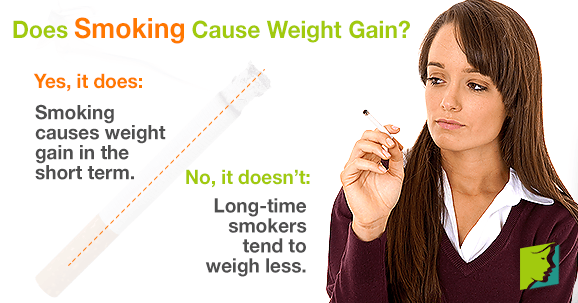It has long been known that many micronutrients are essential for life at low concentrations but become toxic at high concentrations. The effect of vitamins on weight gain also follows this Bertrand's rule. We may take the weight-gain effect of niacin as an example. Jiang and colleagues investigated the effects of dietary supplemental nicotinic acid at different doses (0, 30, 60 and 120 mg/kg diet) on the growth performance of chicken.
Ivers and Veum found that among the doses used (6, 10, 14, 18, 22 and 44 mg/kg diet with adequate Trp), 14 mg of niacin/kg produced maximum weight gain in growing pigs. Shibata et al studied the effect of nicotinamide at doses of 0, 60, 1000 and 5000 mg/kg diet on rat weight gain. Their result showed that nicotinamide increased the food intake of rats, especially in the groups fed diet containing 60 and 1000 mg/kg of nicotinamide. The highest weight gain was observed at 60 mg/kg, while high-dose nicotinamide (5000 mg/kg diet) led to an inhibition of weight gain at the early stage of exposure due to its toxicity. These animal studies suggest that the supplemental dose for niacin to achieve maximum weight-gain effect may be around or less than 60 mg/kg diet. This dose is similar to that used in wheat flour fortification in some countries, e.g., the United States, Canada, Saudi Arabia and Kuwait (Table .
People should monitor weight gain during increased vitamin intake. During some instances, a sudden step-up may impact the body's system to maintain a healthy weight over a longer period. Similar to a "crash" diet approach to lose weight, one should be careful when gaining weight too fast.
The problem starts when attempting extreme measures to gain weight with supplements. It may not present a sustainable weight management approach. Thus, those who use wheat flour products as staple foods possibly consume a higher amount of synthetic B vitamins. In contrast, in developing countries, those who live in urban areas may consume more fortified foods than those who live in rural areas. Infant formula milk (Table 3) and children foods (e.g., ready-to-eat cereals) are highly fortified with vitamins. Thus, infants fed formula milk and children are likely to have excess vitamin intake, as reported in the literature[51-54]; and Different tolerance to fortified foods among population groups.
Water-soluble vitamins can be eliminated through sweat. I'm 32 yr old women, I been losing a lot of weight I'm suppost to be 160 and now I'm in 125 what vitamins are good to gain my weight back and fast.. ## Hi Muneca22, If you're looking to gain weight, vitamins can be a great way to help supplement your nutrient intake, providing energy, as well as improving absorption of the foods you eat. The supplement market is a multi-million dollar business and nutritional supplements include a broad range of products. Some are available over the counter, while others require a prescription. Some supplements have a lot of protein and calories, the nutrients that help you gain weight.
There are also bodybuilding supplements, and on the other end of the spectrum, weight loss supplements. Supplements can be for single nutrients, such as vitamin D or iron, or multiple nutrients, such as a multivitamin. Herbal products also fall under the umbrella of nutritional supplements. As mentioned above, low SES groups in developed countries but high SES groups in developing counties may have a high synthetic vitamin intake from fortified foods. This may explain the findings that obesity is more prevalent in low SES groups in developed countries[6-10] but in high SES groups in developing countries[10-12,55]. Studies have demonstrated that formula-fed infants have a higher plasma level of vitamins compared with human milk-fed infants[51-53].
It is known that formula feeding[65-67] and micronutrient-fortified human milk feeding can lead to rapid infant weight gain, a known major risk factor for children developing obesity[70-72]. Therefore, excess vitamin intake may mediate the link between formula feeding and childhood obesity. ## Atymin is a nutrition supplement made up of essential amino acids.
Our bodies do need certain amounts of them, for proper health. However, the only way they should make someone gain weight is if they are deficient in them and that has caused them to suffer weight loss. And, even in such cases, it would not cause severe weight gain. ## When to eat astymin forte, after or before dinner? ## I have noticed rapid weight gain in just one month after taking astymin multivitamins.
## I just want to start using astymin now to gain weight, and I don't know how effective it is. Can I buy the syrup or capsules, and how many bottles can someone take to start gaining weight? Whole wheat bread is a healthier option when compared to flour bread. Though whole wheat bread is used for weight loss, it can also cause weight gain when consumed in enough amount. You can have whole wheat bread pudding or sandwiches to gain weight considerably over a period of few weeks. Cheese is a high calorie, nutrition-dense dairy product, made primarily from pressed curd of milk.
There are about 300 varieties of cheese, and it adds flavor and taste to various foods. It is a good source of calcium, phosphorus, potassium, magnesium, vitamins A and D, folate, choline, fats, and fatty acids such as omega-3 and omega-6. A cube or slice of cheese ( g) contains 70 calories. Incorporate cheese into your daily diet to gain weight and strengthen your bones. Yes, vitamins can easily lead to weight gain and this is very much true when the vitamin intake is not backed by medical supervision and lacks a scientific approach.
Though there are only a few researches that are supporting this case, the truth is unchanged. These studies have found that vitamin fortification, intake of synthetic vitamins, and lessened vitamin elimination lead to quick weight gain. This chance is very high in fortified nations, women , and people with less Socio-Economic Status . However, one should understand that the mere taking of vitamins does not lead to weight gain.
There may be many other factors such as improper food, lack of physical activity, and health issues such as less metabolism which may trigger more weight gain with the intake of vitamins. It is interesting that some overweight children become overweight adults, while others do not. One possible explanation for this may be a changing vitamin intake during the lifetime.
Whether obese infants become obese children and then obese adults may to a large degree depends on the intake of vitamins after weaning. In theory, infants, even with normal body weight, may become obese adults if they always consume high vitamin-fortified foods (e.g., refined grains) after weaning. We therefore recommend that the role of vitamin intake be taken into consideration in the study of the relationship between infant obesity and later obesity. Recently, it has been suggested that changes in the global food system may play a role in the increased prevalence of obesity.
If this is the case, the global food system must have sharply changed in the 1970s-1980s. This led to a nationwide increase in the consumption of many vitamins, especially fat synthesis-promoting B vitamins[21-24], including B1 , B2 , B3 and B6, in many countries[18-20]. Thus, there is a possibility that the food fortification-induced high vitamin intake may be related to the sudden increase in the prevalence of obesity in the 1970s-1980s.
Indeed, emerging evidence suggests that this food fortification-induced excess vitamin intake might play a major role in the increased prevalence of obesity. In this review, we will discuss the cause of increased vitamin intake and its possible role in obesity, as well as the obesity disparities among countries and groups within countries. Using additional supplements provides some added support to increase muscle metabolism and enhance fat levels. Pregnant women who already struggle with low weight numbers attempt to increase their fat levels with added vitamins. Diverse supplements on the market attempt to assist with muscle and bone growth. A person must remember that the balance between calorie intake and weight gain forms part of logical dietary thinking.
If your daily intake of calories presents more than required, it changes into fat. I'm 19 years old, my weight is 41 and height is 155 cm. I don't know if you are already eating a balanced diet, but nutrition is my field of study so I'd be happy to critique your diet for you to help you reach your goals. Aside from diet and exercise, I think that multivitamins play a big factor in absorbing certain foods better and increasing protein synthesis.
For now the best thing I can suggest is to invest in a multivitamin and eat roughly 5-6 meals a day (in balanced portions of ... The findings, reported in February 2010 in the International Journal of Obesity, add to a growing field of research that links vitamins and minerals to weight loss. But the female supplement-takers reported feeling less hungry, said lead author Angelo Tremblay, Ph.D., an obesity researcher at Laval University in Quebec City. Being less hungry might make it easier to keep the weight off, says Tremblay. For example, the intake of fresh vegetable-derived vitamins might be high in summer but low in winter. However, through evolution, humans have adapted to this seasonal variations in vitamin intake by developing mechanisms to maintain the vitamin homeostasis.
While the intake of vitamins is higher in summer, their elimination through sweat and sebum[27-30] may also increase because the secretion of sweat and sebum is higher in summer than in winter. Moreover, the body can store a certain amount of vitamins when the supply is adequate, which can be used for some time when the intake is inadequate. For example, it will take several months before the first symptoms of vitamin C deficiency appear in a vitamin C deprivation condition. From this point of view, it seems unnecessary to take vitamins everyday, although estimated daily average requirements and the recommended dietary allowances are given (Table .
Remember the key vitamins that allow for weight gain include vitamins A, B, C, and D. These nutrients allow for muscle build, metabolism decrease, and an increase in appetite. As a result, individuals who struggle with weight gain can with the help of a planned diet manage their weight balance. In addition, the intake of protein in different forms allows for a healthy increase in weight.
Nutrient use with combined exercise programs offers continuous improvement of the weight status and management thereof. Our modern lifestyles sometimes require an intake of diverse vitamin types to ensure the upkeep of a healthy body. Many forms of nutrients and vitamins exist to supplement our food intake. Many debates exist regarding the use of vitamins and the subsequent impact on the bodily system. During many circumstances, individuals reported that vitamins could probably increase weight.
Depending on your weight goal, added vitamins can sometimes assist people in balancing dietary requirements. If a person needs to enhance their weight for health or sometimes pregnancy reasons, various vitamin types can help. These vitamin types exist in certain food groups or added supplements. Omega-3 is great for the development of the heart and brain, it also helps in an effective weight loss. A deficiency in the B vitamin folate — called folic acid in supplement form — is usually caused by low dietary intake, malabsorption disorders and medications. Pregnant women have increased folate needs and are at a higher risk of becoming deficient, as do people being treated with hemodialysis for kidney failure.
Certain drugs used in cancer treatment can affect folate metabolism, resulting in low folate levels. Putting on weight requires eating more calories from nutrient-rich foods. Taking vitamins to gain weight is only effective if you have a nutrient deficiency that has caused you to lose weight. Some nutrient deficiencies that could cause weight loss include vitamins C, B12 and folate. While calorie requirements decrease, suggested intakes for certain vitamins and minerals also change. Here are the important nutrients women can get from food, multivitamins, and other dietary supplements when necessary, to feel their best.
I am 20 years old with a skiny body and i need to be at normal body shape. I have tried to eat much but our common food that we eat in ethiopia is only fool of iron,so it didnt help me. so now i need a drug that helps me to become normal fat. ## There really isn't any safe medication to use for this, they carry the risks of causing dangerous side effects and are usually only effective as long as you continue to take them. Since you don't have access to a lot of good foods, have you thought of trying a good multivitamin?
That may help, since it can supply you with nutrients that you may be deficient in. I am 16 years of age and soo skinny people make fun of me at times and say that im too skinny i cant t... Banana is one of the healthiest and nutrition-dense fruits provided by Mother Nature.
It is rich in carbohydrates, fats, omega-3-fatty acids, omega-6- fatty acids, calcium, potassium, phosphorus, vitamins A and C, folate, dietary fiber, natural sugar, and protein. Have at least two bananas per day to gain weight and also improve your overall health. If you are not gaining weight no matter how heavily you eat, you are definitely at the risk of being underweight.
In that case, you will have to go for foods or food supplements for weight gain. Before we go ahead, let us understand the possible reasons behind being underweight. It may be due to increased metabolism, a viral infection, hyperthyroidism, an eating disorder, type 1 diabetes, genes, stress, or an unhealthy diet. Most people do not need to take vitamin supplements and can get all the vitamins and minerals they need by eating a healthy, balanced diet. Vitamins and minerals, such as iron, calcium and vitamin C, are essential nutrients that your body needs in small amounts to work properly. When you scan the supplement shelves at your local drugstore, you might see weight loss touted as a benefit of many products.
For example, some people claim that vitamin B12, calcium, omega-3 fatty acids, and green tea supplements can help you lose weight. Many sugar-sweetened beverages are also supplemented with vitamins, which is also an important cause of increased vitamin intake. Since the 1950s, synthetic vitamins have been added to infant formulas. In the 1980s, the governments of most countries established minimum nutrient requirements for commercial infant formulas, resulting in a significant increase in the content of vitamins in formulas. The levels of vitamins in some formulas for premature infants are more than 20 times higher than that of human milk (i.e., about the minimum limit for nutrients) (Table . 3).
Obesity, a state of excessive accumulation of fat in the body, is a major risk factor for many diseases, such as type 2 diabetes and cardiovascular disease. In the 1970s and 1980s, a rapid increase in the prevalence of obesity occurred almost simultaneously in many developed countries. Since then, developing countries have also experienced a rapid increase in obesity rates.
It is worth noting that the prevalence of obesity differs greatly among countries as well as groups within a country[8-12]. It is more prevalent among those with low socioeconomic status in developed countries[6,8-10] but with high SES in developing countries, especially at their early stage of development[10-12]. Interestingly, compared with breast-fed infants, formula-fed infants have higher rather than lower levels of energy expenditure and are more at risk for obesity in later life[15-17]. Therefore, the rapidly increased prevalence of obesity cannot be simply explained by genetic factors or decreased energy expenditure.
Increasingly, people use additional vitamins to assist their energy levels during the day. Sometimes society adds vitamins to their daily diets without understanding the impacts of it. If a person aims to gain weight using vitamins, the process needs to include a diet plan, exercise, and balanced eating.


























No comments:
Post a Comment
Note: Only a member of this blog may post a comment.